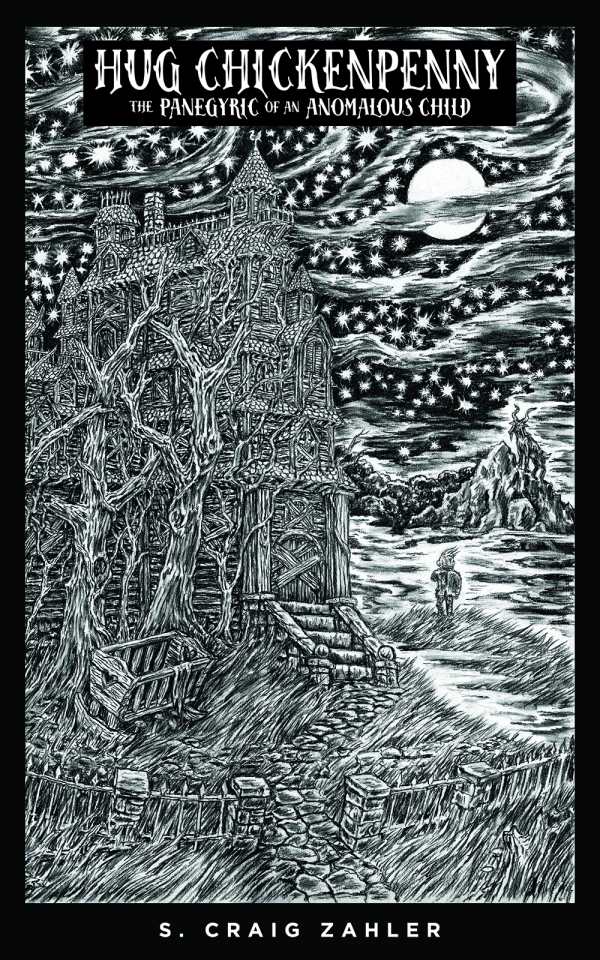
Hug Chickenpenny
The Panegyric of an Anomalous Child
With a fast pace and concise, humorous writing, Hug Chickenpenny is a unique and playful tale.
S. Craig Zahler’s Hug Chickenpenny is curiously fun.
An asymmetrically deformed baby boy is born one night in the huge, terrifying, and possibly haunted home of Meredith Chickenpenny. His mother dies; his future is bleak. He is dubbed “Hug” by a caretaker.
After a brief stint in an orphanage, Hug is adopted by a sinister scientist with an obtuse vocabulary. When things inevitably go awry, the boy falls into the care of his mother’s best friend, an artist who had been wracked by guilt over not adopting him sooner.
Events seemingly always take a turn for the worse when Hug is around, even when life appears to be getting better. The ups and downs of his childhood make for odd but entertaining reading.
As more and more characters meet the boy—and are horrified by his appearance—his endearing demeanor and precocious personality shine through. Astronautic ambitions abound, and having the unbounded curiosity of a normal child elevates Hug’s likability. He is forgiving, kind, and gracious, even when it would be reasonable for him not to be, and he finds it easy to find and keep friends—once the other children get over his alien appearance, that is. He’s a character worth rooting for, even at the darkest of moments.
With a fast pace and concise, humorous writing, Hug Chickenpenny is uniquely readable. Characters are referred to throughout by terms that define their roles; they often seem like inside jokes between the author and reader. “The caretaker” at the orphanage, “the teratologist” who first adopts him, and his eventual stepbrother, “the scrappy youth,” for instance, rise above their apt appellations as the story progresses. The only downside to this playfulness is that two children at the orphanage are given the racially-insensitive names Cocoa and Egg Roll.
A gothic atmosphere, realistic dialogue, and characters that feel as familiar as friends make this story a success, but the humor is what truly stands out. Whenever Hug’s adoptive father says “My specimen—er, son,” or when Hug himself exclaims “Darn … double darn,” there exists momentary relief from the unfortunate circumstances of Hug’s childhood. Nicknames, catchphrases, and hilarious imagery bring lightness to the dreary subject matter.
Hug Chickenpenny’s clear, entertaining writing and beautiful plot progression work together wonderfully, resulting in a funny and heartwarming story that its anomalous lead deserves.
Reviewed by
Aimee Jodoin
Disclosure: This article is not an endorsement, but a review. The publisher of this book provided free copies of the book and paid a small fee to have their book reviewed by a professional reviewer. Foreword Reviews and Clarion Reviews make no guarantee that the publisher will receive a positive review. Foreword Magazine, Inc. is disclosing this in accordance with the Federal Trade Commission’s 16 CFR, Part 255.
